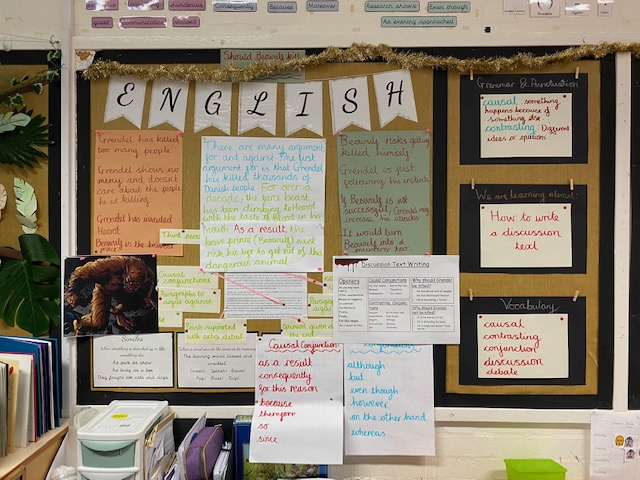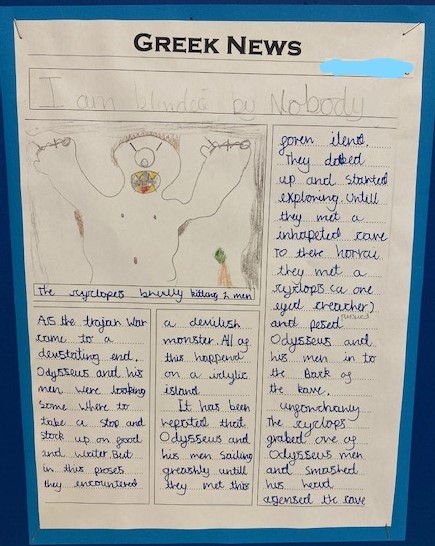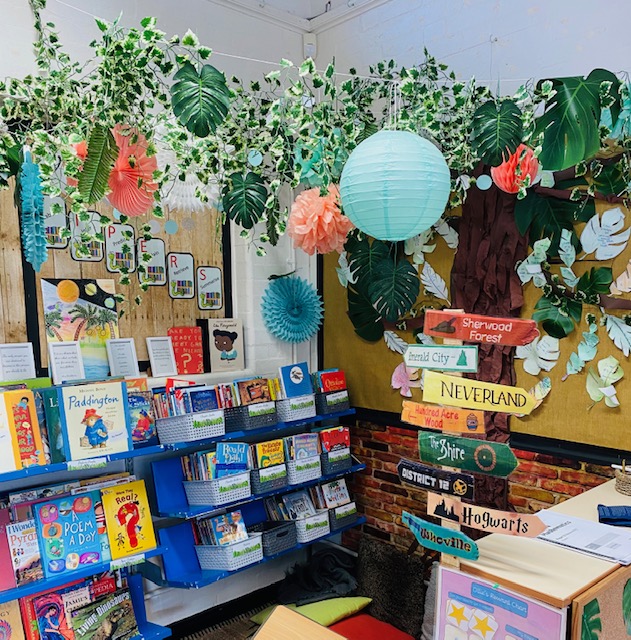English
English Curriculum
High quality literature is at the heart of our English curriculum at Keston. Most of our writing is based on CLPE Power of Reading texts which help develop a love of both reading and writing across the school. Other writing is based around our curriculum, taking advantage of exciting cross-curricular links that engage all learners. Our English teaching objectives are taken from the National Curriculum programmes of study to ensure a progression of skills are taught developing both compositional and transcriptional skills in writing.
Every one of our staff is committed to ensuring our children become fluent readers who understand what they are reading and articulate writers in order for them to access all curriculum areas now and going forward. We know the importance of spoken language and how it underpins reading and writing.
We have a strong belief that children deserve to study and listen to whole books and not just extracts – we are convinced it is the only way they will learn to love literature. We teach reading skills initially through phonics and as children gain more confidence we look at the reading domains through reading lessons. For these lessons we use good quality fiction, non-fiction and poetry to explore a range of reading skills and develop a love of reading and their comprehension skills. From Nursery and Reception to Year 6, we have a strong ethos of reading for pleasure. In Reception, children take home books of their choosing to share with an adult alongside a book that matches their phonic knowledge and this continues until the end of key stage 1. In key stage 2, children get an opportunity to borrow books from our library on a weekly basis to read alongside a book at their level from our vibrant book corners. We understand that nurturing reading for pleasure is vital to enhance children’s life chances.

Speaking and Listening
At Keston our aim is for children to learn to communicate their thoughts, ideas and opinions clearly and succinctly, as well as to listen to and reflect on the ideas of others. We encourage children to turn-take in conversations and adapt their speech to a range of situations and audiences. From an early age, the children are encouraged to participate in a range of activities such as drama and role-play.

Writing
Writing is developed from an early age by mark making and activities to develop fine motor skills.
We aim for our children to develop their ability to write in a wide range of genres, including fiction, non-fiction and poetry.
In KS1 children are taught to use finger spaces, full stops and capital letters and progress to using other forms of punctuation such as question and exclamation marks. They are taught about using engaging and meaningful vocabulary to make their writing interesting. By the end of KS1, pupils begin to edit and improve their writing.
In KS2, pupils develop competence in the accuracy of grammar, punctuation and spelling and the structure of text composition. Children are taught the skills of planning and drafting an extended piece of writing, organising their work coherently and the processes of evaluation and editing. Pupils will apply their skills through a range of genres, considering vocabulary and structures appropriate for the purpose and audience.
Reading
Reading for pleasure
At Keston we want children to develop enjoyment of reading. We encourage children to read for pleasure and to develop the ability to read fluently and with understanding.
We have two libraries that all classes have access to throughout the week, which are generously stocked with age appropriate and popular texts.
Reading
From year one we teach reading using the 6 reading domains as part of the UK’s reading curriculum. They are the key areas which we feel children need to know and understand in order to improve their comprehension of texts. These are:
• Vocabulary
• Inference
• Prediction
• Explanation
• Retrieval
• Sequence or Summarise
The 6 domains focus on the comprehension aspect of reading and not the mechanics: decoding, fluency, prosody etc. As such, using these domains is not a reading scheme but rather a method of ensuring that teachers ask, and students are familiar with, a range of questions. They allow the teacher to track the type of questions asked and the children’s responses to these which allows for targeted questioning afterwards.

